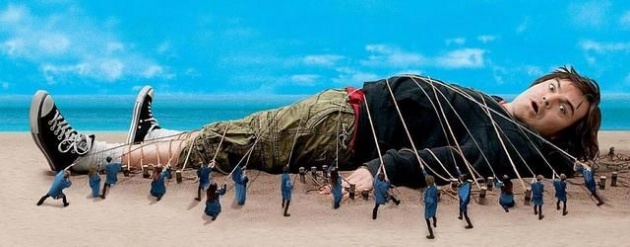[TWO-FOLD APPEAL]
Gulliver's Travels has two-fold appeal, one to the child, the other to the grown up. For the child, it is a sort of fairy-tale with the delight of pigmies and giants and all the fun of absurdity, of Gulliver's contrast with them and his adventures among them. Particularly striking is the way in which Swift has made these fabulous tales so completely plausible to the reader. It is said that when the book was first published, even learned readers solemnly discussed it as if it was a record of actual happenings. One gentleman even rushed to look at a map to see as if he could locate Lilliput and Brobdingnag. It is not then surprising that children are quite ready to believe every word of the book.

For the adult reader, there is the added interest of satire. To his contemporaries, the book must have been an exciting treat as they recognized one victim after the other shown up mercilessly by Swift's rapier-like thrusts of satire. It is noteworthy that the satire in the book has a particular reference to English politics and politicians of Swift's own time. Nevertheless, the satire has not lost its power to amuse or entertain. Thus, we have to approach this work in two ways: we have to treat it as an adventure story and we have then to probe it deep in order to grasp and appreciate its satirical purpose.
Many incidents in the voyage hold the attention of the young readers. The incidents as his first meal in which he consumed basketful of meat and logsheads of wine and the taking of inventory details of his possession are the funniest incidents. However, is expurgated in children's editions---the march of the Lilliputian army leader Gulliver's legs.



